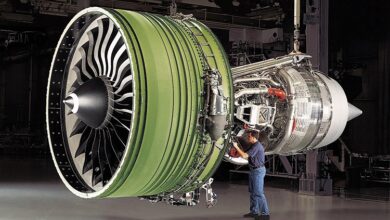How Enterprise IoT is Revolutionizing Business Operations
In today’s fast-paced digital world, businesses are constantly seeking innovative ways to gain a competitive edge. One of the most transformative technologies driving this change is enterprise IoT (Internet of Things). By integrating connected devices into their operations, companies can gather data, automate processes, and enhance decision-making, ultimately leading to increased efficiency and profitability. This article delves into how enterprise IoT is reshaping industries, explores key benefits, and discusses future trends that will shape the landscape of business technology.
Understanding Enterprise IoT
Enterprise IoT refers to the deployment of IoT technologies in a business environment to connect various devices, systems, and applications. These devices, ranging from sensors and machinery to software platforms, collect and exchange data, providing businesses with real-time insights and operational control. Unlike consumer IoT, which focuses on smart homes and personal gadgets, enterprise IoT is designed to address complex business needs and challenges.
Key Components of Enterprise IoT
- Sensors and Actuators: These devices gather data from the physical environment and can trigger actions based on this data. For example, sensors in a manufacturing plant might monitor machinery performance and trigger maintenance alerts.
- Connectivity: Reliable and secure connectivity is crucial for IoT devices to communicate with each other and with centralized systems. This can include technologies such as Wi-Fi, Bluetooth, 5G, and LPWAN (Low Power Wide Area Network).
- Data Analytics: Once data is collected, it needs to be analyzed to generate actionable insights. Advanced analytics platforms and machine learning algorithms help businesses interpret data patterns and make informed decisions.
- Cloud Computing: Enterprise IoT often leverages cloud platforms to store and process vast amounts of data. This scalability is essential for handling the large volumes of information generated by IoT devices.
- Security: Given the sensitivity of the data involved, robust security measures are imperative. This includes encryption, secure communication protocols, and regular updates to safeguard against vulnerabilities.
Benefits of Enterprise IoT
- Enhanced Operational Efficiency: By providing real-time monitoring and control over various aspects of business operations, enterprise IoT helps streamline processes. For example, IoT-enabled machinery can self-diagnose issues, reducing downtime and maintenance costs.
- Data-Driven Decision Making: The vast amounts of data collected by IoT devices offer valuable insights that can drive strategic decisions. For instance, predictive analytics can forecast equipment failures before they occur, allowing businesses to address issues proactively.
- Improved Customer Experience: IoT can enhance customer interactions by offering personalized services and products. For example, smart inventory management systems ensure that popular items are always in stock, leading to increased customer satisfaction.
- Cost Savings: Automation and improved efficiency translate into significant cost savings. IoT systems can optimize resource usage, reduce waste, and lower operational expenses.
- Innovative Business Models: The insights gained from IoT data can enable new business models, such as subscription-based services or pay-per-use models. Companies can leverage these models to diversify their revenue streams and better meet customer needs.
Enterprise IoT in Different Industries
- Manufacturing: In the manufacturing sector, IoT is revolutionizing production lines with smart sensors that monitor machinery, track production processes, and optimize supply chain management. Predictive maintenance and real-time quality control are just a few examples of how IoT is enhancing manufacturing efficiency.
- Healthcare: IoT is transforming healthcare by enabling remote patient monitoring, managing medical equipment, and improving patient care. Wearable devices and smart medical equipment provide real-time health data, facilitating better diagnosis and treatment.
- Retail: Retailers use IoT to enhance inventory management, personalize customer experiences, and streamline supply chains. Smart shelves, beacons, and RFID tags help retailers manage stock levels, offer targeted promotions, and improve the overall shopping experience.
- Transportation and Logistics: IoT technologies are optimizing logistics by providing real-time tracking of shipments, monitoring vehicle conditions, and improving route planning. This leads to better fleet management, reduced transportation costs, and enhanced delivery times.
- Energy: The energy sector benefits from IoT through smart grids, predictive maintenance of infrastructure, and optimized energy consumption. IoT sensors monitor energy usage, detect anomalies, and enable more efficient management of energy resources.
Challenges and Considerations
While enterprise IoT offers numerous benefits, it also presents challenges that businesses must address:
- Data Security: With the increase in connected devices, the risk of cyber threats also rises. Implementing robust security measures and ensuring compliance with data protection regulations is crucial.
- Interoperability: Integrating various IoT devices and systems from different vendors can be complex. Standardizing protocols and ensuring compatibility are essential for seamless operation.
- Scalability: As businesses grow and IoT deployments expand, scalability becomes a critical factor. Ensuring that IoT infrastructure can handle increased data volumes and device counts is vital for long-term success.
- Cost of Implementation: While IoT can lead to cost savings, the initial investment in technology and infrastructure can be substantial. Businesses need to carefully evaluate the return on investment and plan their budget accordingly.
- Data Management: Handling the vast amounts of data generated by IoT devices requires efficient data management and storage solutions. Businesses must invest in advanced analytics tools and cloud platforms to process and utilize this data effectively.
Future Trends in Enterprise IoT
- Edge Computing: As the number of IoT devices grows, processing data at the edge—close to where it is generated—becomes increasingly important. Edge computing reduces latency and bandwidth usage by processing data locally, leading to faster and more efficient operations.
- 5G Connectivity: The rollout of 5G networks will enhance IoT capabilities by providing faster and more reliable connectivity. This will enable more advanced applications and support a higher density of connected devices.
- Artificial Intelligence and Machine Learning: AI and machine learning will play a significant role in analyzing IoT data and automating decision-making processes. These technologies will enable more sophisticated predictive analytics and intelligent automation.
- Increased Focus on Security: As IoT adoption grows, so will the emphasis on cybersecurity. Businesses will need to implement advanced security measures to protect their IoT networks and data from evolving threats.
- Sustainability and Green IoT: There will be a growing focus on leveraging IoT for sustainability. Green IoT initiatives aim to reduce energy consumption, minimize waste, and promote environmentally friendly practices through smart technology.
Conclusion
Enterprise IoT is not just a buzzword but a powerful tool that is reshaping the way businesses operate. By leveraging connected devices and advanced analytics, companies can achieve unprecedented levels of efficiency, innovation, and customer satisfaction. While there are challenges to overcome, the benefits of enterprise IoT far outweigh the risks. As technology continues to evolve, businesses that embrace IoT will be well-positioned to lead in the digital age.
For more interesting blogs click here.



